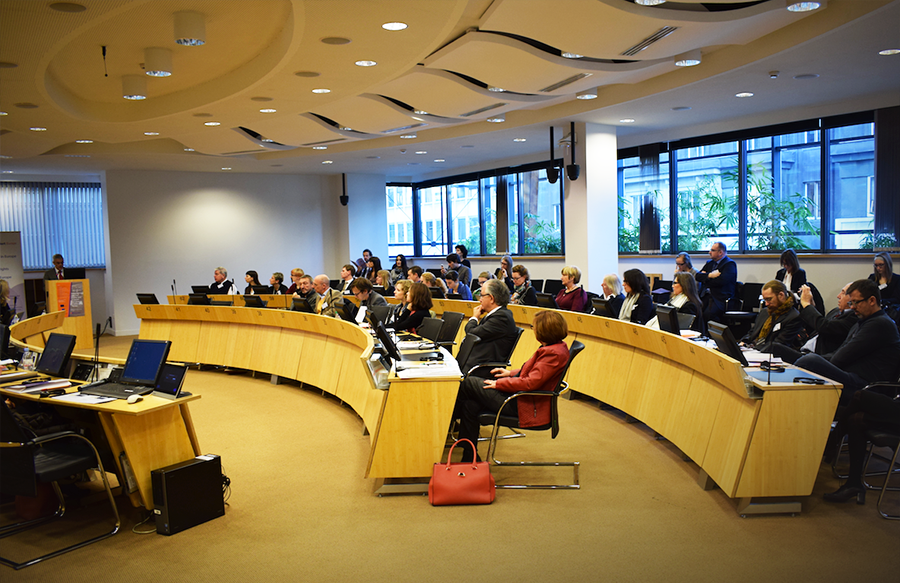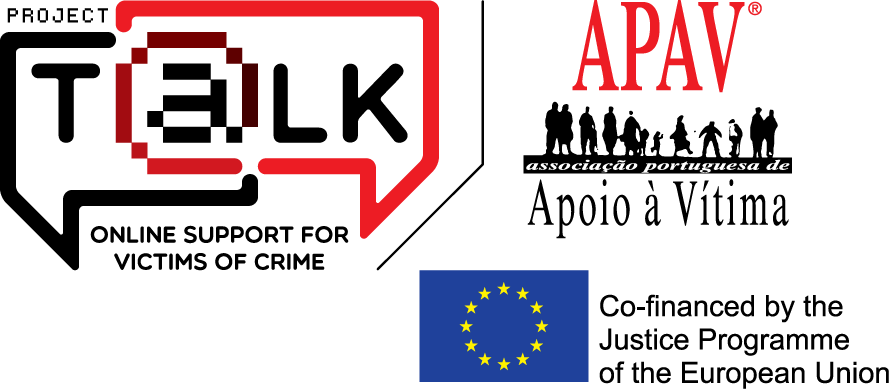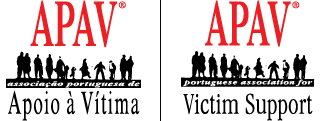
Conference “Establishing Victims’ Rights and Support Services in Challenging Times”

Victim Support Europe is organising the conference “Establishing Victims’ Rights and Support Services in Challenging Times”, hosted at the European Economic and Social Committee on 29 November 2016.
In 2012, the Member States of the European Union, supported by the European Parliament and the European and Economic Social Committee committed to EU legislation establishing minimum rights and services for all victims of crime. The Directive 2012/29/EU establishing minimum standards on the rights, support and protection of victims of crime was widely recognised as ambitious but realistic.
A year after the deadline for implementation of the EU Victims’ Rights Directive, and at a time when Europe is facing numerous economic, social and security challenges, we examine the state of play in EU Member States. First the conference will highlight the successes and failures of States in implementing minimum standards to meet the needs of victims of crime. The latter half of the conference will address the support needs of victims and survivors of terrorism. The focus will be on the development of victim oriented responses and the EU’s role in supporting these efforts.
Speakers from diverse areas of expertise - including victims of crime, Security Commissioner Julian King, MEP Monika Hohlmeier, Alexandra Jour-Schroeder (DG Justice), Azzeddine Salmane (UNODC), Kathleen Walker-Shaw (EESC) and victim support organisations: Levent Altan (VSE) & Roberta Lepre (VS Malta) - will speak on current developments, problems faced by all victims and priorities for specific areas such as terrorism.
http://victimsupport.eu/news/vse-conference-establishing-victims-rights-in-challenging-times/
Project T@lk | Survey about distance-based support for victims of crime

Information and communication technologies represent nowadays fundamental tools for promoting the access to support and information in cases of violence or crime. Tools such as the e-mail, informative websites and helplines represent valuable distance-based support services for victims of crime, particularly for those victims who would not have access to support.
Given the emergence of this reality and the changes in the current ways of communication, the Portuguese Association for Victim Support (APAV) developed a survey about distance-based support for victims of crime, which had the participation of 60 European victim support organisations and support services.
The results of the survey revealed that the majority of the participant entities has distance-based support services for victims of crime, being those helplines, online support tools or both.
In the specific case of online support for victims of crime, the conventional forms of support and information, such as the e-mail or the websites, were pointed as the most used online support tools.
Victim support organisations and support services identified several advantages in delivering online support for victims of crime, such as the increased access to support and the flexibility/convenience in the access to support services. The results also revealed that a significant proportion of entities without online support tools is reluctant or undecided about their willingness to develop/implement online support services.
This survey was developed under Project T@LK – online support for victims of crime, promoted by the Portuguese Association for Victim Support (APAV) and co-financed by the Justice Programme of the European Union. The project has the partnership of Victim Support Malta, Human Rights Monitoring Institute, Victim Support Finland, Catalan Society of Victimology and Victim Support Europe.
The full report with the results of the survey is available here.
El Ojo de Iberoamérica 2016: APAV won award for awareness campaign

APAV won the award for “Best Advertiser”, in the category of “Local Performance” at the El Ojo de Iberoamérica 2016 Festival. APAV won that award for the “Home” awareness campaign, developed by the FCB Lisbon agency for APAV. The award was presented on November 3rd, at the ceremony which took place in Buenos Aires, Argentina.
APAV expresses concern with Portuguese families in the UK

APAV expresses its deep concern at the cases made public recently, referring to Portuguese families in the UK. Recent reports on the removal of children from parents of Portuguese origin (and other nationalities) took APAV to establish contacts with similar organizations in order to express its concern, as well as more information about the practices relating to social services United Kingdom.
Awareness raising towards Cybercrime
Portuguese live in the social networks. Literally. They spend 20 minutes per day online and share all kinds of information and data on their professional and personal life, often without realising it.
This happens not only in Portugal and one might say that is a phenomenon with a worldwide dimension. Each minute the 1,5 billion active users of Facebook post more than 510 thousand comments, 136 thousand photographs and alter more than 293 thousand profiles. The 1,3 billion Twitter users post more than 500 million tweets per day.
This overwhelming sharing leads out for many persons to fall victims of several types of cybercrime: phishing, stalking, cyberbullying, amongst others.
In order to raise the awareness to this dangerous phenomenon, APAV carried out several activities during these last few months, of which the highlight goes to the “Unexpected Biography” written by the nominated Portuguese writer, João Tordo, and to the celebration of the Stalking Awareness Day, last April 18th.
The João Tordo’s “Unexpected Biography” results from the writer’s acceptance of APAV’s invitation to write a person’s biography based only upon the data posted on the Social Networks. This “Unexpected Biography” was compiled in a book, which was publicly launched on the 15th of April 2015, at the Ler Devagar bookstore, located at the LX Factory in Lisbon.








